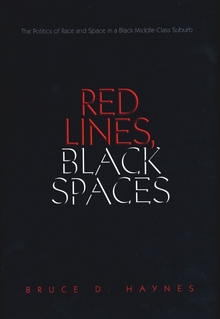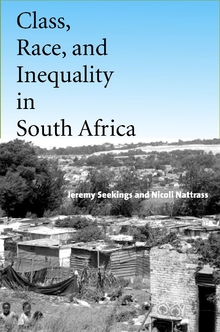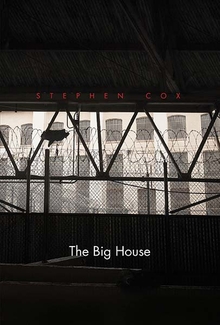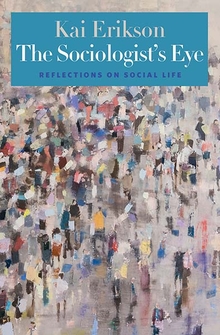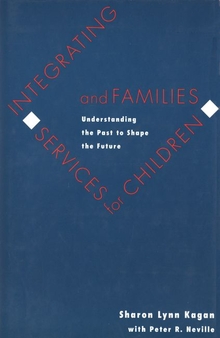Red Lines, Black Spaces
WARNING
You are viewing an older version of the Yalebooks website. Please visit out new website with more updated information and a better user experience: https://www.yalebooks.com
The Politics of Race and Space in a Black Middle-Class Suburb
Bruce D. Haynes; Foreword by Kai Erikson
Out of Print
Runyon Heights, a community in Yonkers, New York, has been populated by middle-class African Americans for nearly a century. This book—the first history of a black middle-class community—tells the story of Runyon Heights, which sheds light on the process of black suburbanization and the ways in which residential development in the suburbs has been shaped by race and class.
Relying on both interviews with residents and archival research, Bruce D. Haynes describes the progressive stages in the life of the community and its inhabitants and the factors that enabled it to form in the first place and to develop solidarity, identity and political consciousness. He shows how residents came to recognize common political interests within the community, how racial consciousness provided an axis for social solidarity as well as partial insulation from racial slights, and how the suburb afforded these middle-class residents a degree of physical and social distance from the ghetto. As Haynes explores the history of Runyon Heights, we learn the ways in which its black middle class dealt with the tensions between the political interests of race and the material interests of class.
Relying on both interviews with residents and archival research, Bruce D. Haynes describes the progressive stages in the life of the community and its inhabitants and the factors that enabled it to form in the first place and to develop solidarity, identity and political consciousness. He shows how residents came to recognize common political interests within the community, how racial consciousness provided an axis for social solidarity as well as partial insulation from racial slights, and how the suburb afforded these middle-class residents a degree of physical and social distance from the ghetto. As Haynes explores the history of Runyon Heights, we learn the ways in which its black middle class dealt with the tensions between the political interests of race and the material interests of class.
Bruce D. Haynes is assistant professor of sociology at the University of California-Davis.
"A fine addition to the historical, political, and sociological literature that examines class relationships within African American communities, racial relationships among blacks and whites, and the articulation of African American group interests in America."—Sharon D. Wright, Journal of Politics
“Red Lines, Black Spaces is a welcome contribution to the debate begun by E. Franklin Frazier’s Black Bourgeoisie and continued by William Julius Wilson’s Declining Significance of Race. Bruce Haynes grounds (literally) the question of the class basis of racial differences in this fascinating study of an African-American suburb in Yonkers.”—Charles Lemert, Wesleyan University, author or Social Things
“Red Lines, Black Spaces is the first complete social history of a suburban middle class black suburb. Haynes uses interviews with residents, available public documents and other artifacts to trace the mechanisms by which racial segregation was created and enforced in twentieth century America. Haynes skillfully lays bare the tensions between the racial interests of the black homeowners and their class interests as middle class suburbanites. He shows how racial conflicts with whites re-enforce a black community solidarity, while at the same times class interests propel the residents of the community to resist solidarity with poorer blacks who move to the city of Yonkers later on. This book addresses key questions in the current race relations literature on the cross cutting allegiances of race and class among well off blacks. It fleshes out social processes of segregation and the spatial mapping of income segregation that are still not widely recognized or understood. This is social history and sociology at its best—well written, accessible and informative, Red Lines, Black Spaces should be useful to all who want to understand the intersections of race, class and social geography in America.”—Mary Waters, Professor of Sociology, Harvard University
ISBN: 9780300084900
Publication Date: September 10, 2001
Publication Date: September 10, 2001
208 pages, 6 1/8 x 9 1/4
16 b/w illus.
16 b/w illus.

